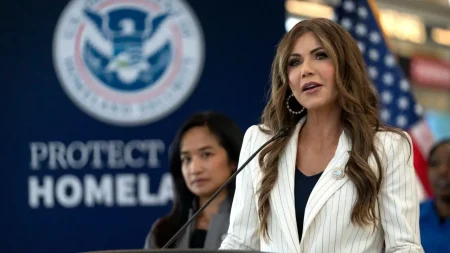Thailand’s Thaksin Flees to Dubai Ahead of Crucial Court Verdict, Promises Return
Former Prime Minister Faces Potential Prison Sentence While Political Uncertainty Looms
In a move that has sent ripples through Thailand’s already tumultuous political landscape, former Prime Minister Thaksin Shinawatra has departed for Dubai just days before a court verdict that could result in his imprisonment. The billionaire politician, who has maintained a significant influence on Thai politics even after his ouster in a 2006 military coup, has publicly pledged to return to Thailand in time for his scheduled hearing, though many political analysts express skepticism about this commitment.
“I have important business to attend to in Dubai, but I want to assure the Thai people that I will return to face the judicial process,” Thaksin reportedly told close associates before boarding his private jet at Bangkok’s Suvarnabhumi Airport on Tuesday evening. This departure marks the latest chapter in Thaksin’s complex relationship with Thailand’s legal system, which has seen him facing numerous charges since his removal from power. Critics view these legal challenges as politically motivated attempts to diminish his influence, while supporters of the current administration maintain that Thaksin must be held accountable for alleged abuses of power during his tenure as prime minister.
A History of Political Turbulence and Legal Challenges
Thaksin’s journey from telecommunications tycoon to prime minister and subsequently to political exile exemplifies Thailand’s fraught political division. After amassing considerable wealth through his telecommunications empire, Thaksin entered politics and won a landslide election in 2001, establishing himself as a champion of Thailand’s rural poor with populist policies that included universal healthcare and microfinance initiatives. However, his administration was marred by allegations of corruption, human rights abuses, and what opponents characterized as authoritarian tendencies.
The 2006 military coup that removed him from office was followed by years of political instability, with pro-Thaksin “Red Shirt” supporters frequently clashing with “Yellow Shirt” royalists and the military establishment. Despite living abroad for much of the past decade and a half, Thaksin has continued to exercise significant influence through proxy political parties, most notably the Pheu Thai Party, which has won most elections since his ouster but has repeatedly faced dissolution or military intervention. The current case against him relates to charges of corruption and abuse of power during his premiership, specifically regarding telecommunications concessions that allegedly benefited his family’s business interests while disadvantaging the state.
Dubai: The Preferred Haven for Political Exiles
Thaksin’s choice of Dubai as a destination is not coincidental. The United Arab Emirates city has become a popular refuge for political figures facing legal troubles in their home countries, owing to its combination of luxury amenities, business opportunities, and, critically, limited extradition agreements with many nations. “Dubai offers Thaksin both comfort and security,” explains Dr. Pavin Chachavalpongpun, a Thai political scientist at Kyoto University. “It’s a place where he can maintain his business networks while remaining relatively insulated from Thailand’s reach should the verdict not go in his favor.”
The timing of his departure has raised eyebrows among political observers in Bangkok. The court verdict, scheduled for Monday, comes after years of legal proceedings and delays. If found guilty, Thaksin faces up to fifteen years in prison on combined charges—a sentence that, given his age of 73, could effectively amount to life imprisonment. Government spokesperson Anucha Burapachaisri stated that authorities are monitoring the situation but emphasized that “all Thai citizens, regardless of status, must comply with judicial processes.” Meanwhile, immigration officials confirmed that no travel restrictions had been placed on Thaksin prior to his departure, as he had been released on bail with the condition that he not leave the country without court permission—permission that sources close to the case indicate he may have secured quietly.
Political Implications and Public Reaction
The departure has elicited predictably polarized reactions from Thailand’s divided public. On social media platforms, hashtags related to Thaksin’s flight have been trending, with supporters defending his right to conduct business abroad before his hearing and detractors accusing him of preparing to flee justice permanently. “This is the same old Thaksin playbook,” said political commentator Thitinan Pongsudhirak of Chulalongkorn University. “He creates uncertainty about his intentions, keeping both his supporters and opponents guessing, which ultimately maintains his relevance in the national conversation.”
For Thailand’s current government, led by Prime Minister Prayut Chan-o-cha—the former general who led another coup in 2014—Thaksin’s potential absence from his hearing presents both opportunities and challenges. A Thaksin no-show would vindicate those who have long accused him of placing himself above the law, potentially strengthening the government’s position. However, it might also galvanize his substantial support base, particularly in Thailand’s north and northeast regions, where many view him as a persecuted champion of the common people. Already, reports indicate that small gatherings of red-shirted supporters have assembled in Bangkok and Chiang Mai, Thaksin’s political stronghold, though security forces have maintained a visible presence to prevent any escalation.
The Uncertain Road Ahead for Thailand
As Thailand approaches this pivotal moment in its ongoing political drama, the broader implications for the nation’s democratic development remain unclear. The country has witnessed twelve successful coups since becoming a constitutional monarchy in 1932, with the military frequently intervening when elected governments challenge traditional power structures. The timing of Thaksin’s potential imprisonment or exile would be particularly significant as Thailand prepares for general elections expected within the next year.
“Whether Thaksin returns or not, his influence on Thai politics will persist,” notes political analyst Thitinan. “The fundamental divisions he exposed—between urban and rural interests, between traditional institutions and populist forces—remain unresolved.” International observers, including representatives from human rights organizations and diplomatic missions, are closely monitoring the situation, with concerns about both the fairness of Thailand’s judicial process and the potential for political unrest depending on the outcome. As the weekend approaches, the eyes of Thailand—and increasingly, the international community—remain fixed on both the Dubai skyline and the Bangkok courthouse, waiting to see if one of Southeast Asia’s most controversial political figures will indeed return to face a judgment that could define not only his future but potentially his country’s political trajectory for years to come.










